23 Common Causes of Fire
- July 17, 2023
- 5:05 pm
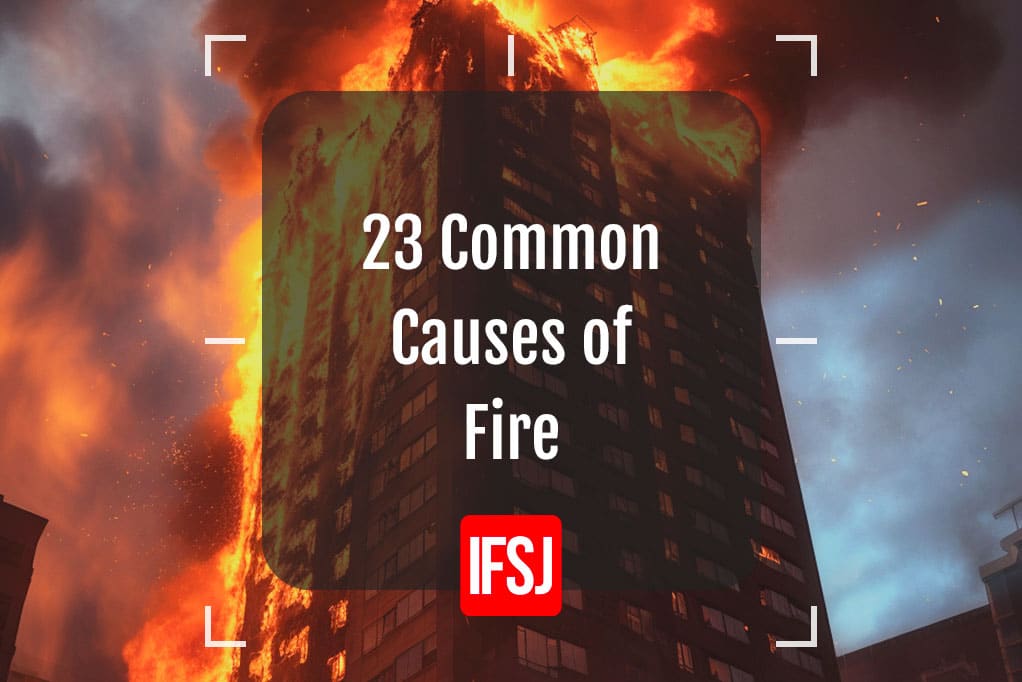

Simon Burge
Share this content
Fires are a devastating and dangerous occurrence that can cause immense damage to property and pose a threat to lives, with the cost of fire in the UK now above £12 billion.
Understanding the most common causes of fire is essential for prevention and safety.
By being aware of these causes, we can take proactive measures to minimise the risk of fire incidents.
This article aims to provide an overview of 23 of the most common causes of fire, ranging from everyday activities to potential hazards within our surroundings.
By exploring some of the main causes, we can enhance our knowledge and promote fire safety in our homes, workplaces, and communities.

- Cooking Equipment
- Heating Equipment
- Electrical Equipment
- Cigarettes, Cigars & E-Cigarettes
- Candles
- Children Playing with Matches
- Faulty Electrical Wiring
- Christmas Decorations
- BBQs
- Bonfires
- Remote Controls
- Batteries
- Tumble Dryers
- Aerosol Cans
- Arson
- Construction Materials
- Clutter
- Flammable Liquids, Gases & Materials
- Human Error
- Outdated Fire Risk Assessments
- Mechanical Friction
- Negligence
- Nutella
- Conclusion
Cooking Equipment
Cooking equipment is one of the leading causes of residential fires.
Unattended cooking, grease buildup, and flammable objects left too close to heat sources can ignite fires.
It’s crucial to maintain a high standard of cooking safety, use timers as reminders, and keep a safe distance between flammable materials and heat sources.
Heating Equipment
Heating equipment, including space heaters and furnaces, can pose a fire hazard if not used correctly.
Overheating, lack of maintenance, and placing flammable items near heat sources can lead to fires.
Regular inspection and maintenance of heating systems, proper ventilation, and keeping flammable items away from heaters are vital safety measures.
Electrical Equipment
Electrical equipment, such as faulty wiring, overloaded circuits, and malfunctioning appliances, is one of the leading causes of fire, as well as one of the most dangerous fires to put out.
Electrical sparks, short circuits, and overheating due to loose connections or damaged cords can ignite fires.
Ensuring proper installation, regular inspection, and prompt repair of electrical systems and appliances are crucial for fire prevention.
Cigarettes, Cigars & E-Cigarettes
Careless handling and improper disposal of cigarettes, cigars, and e-cigarettes are common causes of fires.
Discarding lit cigarettes improperly or not fully extinguishing them can ignite flammable materials.
Smokers should use designated ashtrays, never smoke in bed, and ensure proper disposal of smoking materials in fire-safe containers.
Candles
Candles, while creating a pleasant ambiance, can also be a fire hazard if left unattended.
Accidental knocks, proximity to flammable objects, or forgetting to extinguish candles can result in fires.
It’s important to place candles on stable surfaces, away from flammable materials, and never leave them burning when unattended.
Children Playing with Matches
Children playing with matches or lighters out of curiosity can lead to fire incidents.
Educating children about the dangers of matches and lighters and keeping them out of their reach are essential preventive measures.
Parents should store matches and lighters in secure locations to prevent access by children.
Faulty Electrical Wiring
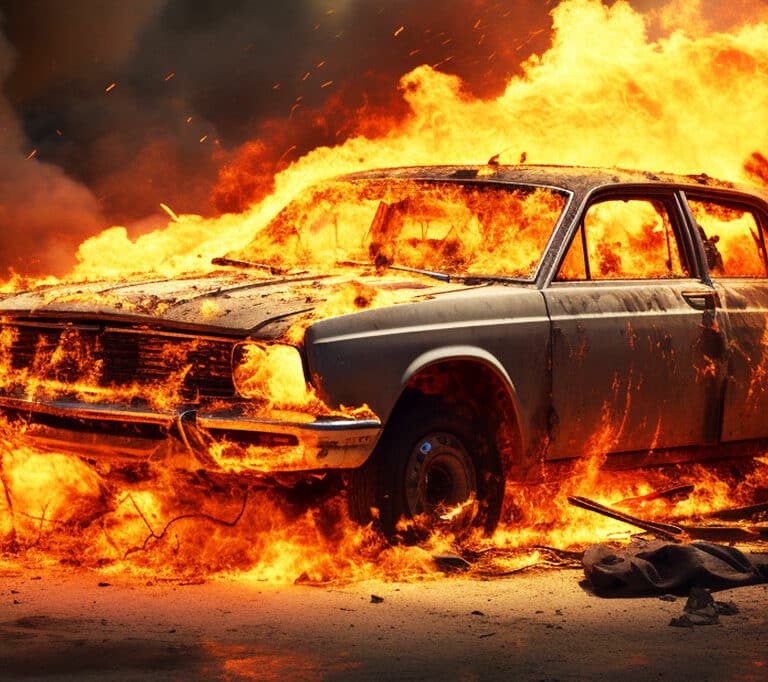
Faulty electrical wiring, due to age, poor installation, or rodent damage, can cause electrical fires.
Overheating wires, short circuits, and electrical arcing are common signs of faulty wiring.
Regular electrical inspections, prompt repairs, and the use of licensed electricians can help prevent electrical fires.
Christmas Decorations
Christmas decorations, such as lights and candles, can pose fire risks if not used safely and are a serious cause of fire around the holiday season.
Overloaded electrical sockets, damaged lights, and placing flammable decorations near heat sources can ignite fires.
Following manufacturer’s instructions, using LED lights, and keeping decorations away from flammable materials are essential for fire safety during the holiday season.
BBQs
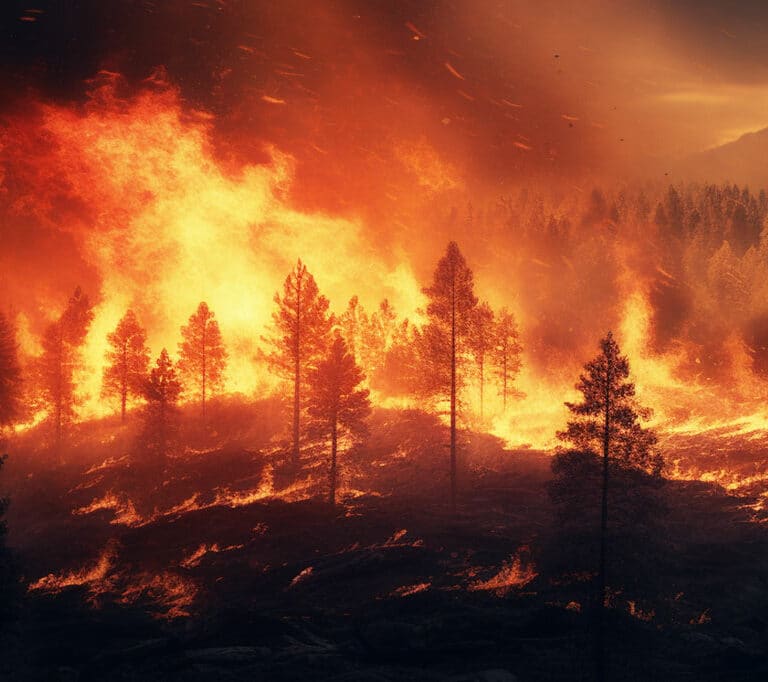
Barbecue grills, if used incorrectly, can be some of the main causes of fire.
Improper placement near flammable structures, grease buildup, and failing to extinguish coals properly can result in fires.
Incorrectly used disposable BBQ’s also have a high risk of causing wildfires.
Safe barbecue practices, regular cleaning of grills, and maintaining a safe distance from flammable materials are crucial for preventing accidents.
Bonfires
Bonfires, while enjoyable, require caution to prevent accidents.
Inadequate containment, excessive size, and proximity to flammable materials can lead to uncontrolled fires.
Ensuring proper construction, maintaining a safe distance from structures and vegetation, and having firefighting equipment nearby are important safety measures.
Remote Controls
Neglected or damaged remote controls can cause fires.
Malfunctioning batteries, short circuits, and overheating can lead to remote control fires.
Regularly checking and replacing batteries, keeping remote controls away from heat sources, and avoiding excessive pressure on buttons can prevent such incidents.
Batteries
Improper handling of batteries can be one of the causes of fire.
Damaged or expired batteries, incorrect insertion, and mixing different types of batteries can cause overheating and fires. More public awareness is needed to help prevent battery fires.
Safely storing batteries, using the correct battery type, and recycling old batteries properly are essential for fire prevention.
Tumble Dryers
Tumble dryers with clogged lint filters and vents pose a fire hazard.
Accumulated lint can ignite from the dryer’s heat, leading to fires.
Regularly cleaning lint filters, ensuring proper venting, and professional dryer maintenance can prevent such incidents.
Aerosol Cans
Aerosol cans, if exposed to heat or punctured, can explode and ignite fires.
Leaving aerosol cans near heat sources or disposing of them improperly can lead to dangerous fire situations.
Storing aerosol cans in cool, well-ventilated areas and following proper disposal guidelines are crucial for fire safety.
Arson
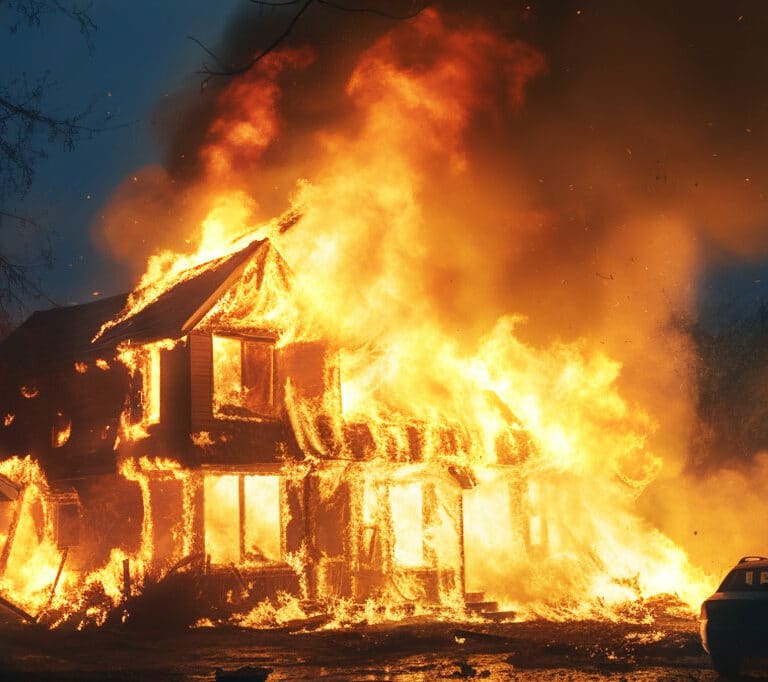
Intentional acts of arson, where fires are set deliberately, can cause significant damage.
Arson can occur due to various reasons, including vandalism, revenge, or insurance fraud.
Community awareness, neighbourhood watch programs, and reporting suspicious activities can help deter arson incidents.
Construction Materials
Construction materials, such as flammable insulation, paint, or chemicals, can contribute to causes of fire during building projects.
Mishandling, improper storage, and inadequate fire safety measures can lead to construction site fires.
Implementing proper fire prevention strategies, following safety regulations, and having fire extinguishers readily available are vital during construction activities.
Clutter
Accumulated clutter can increase the risk of fires by obstructing escape routes and providing fuel for flames.
Cluttered spaces make it challenging to control or escape fires quickly.
Regular decluttering, proper storage of items, and maintaining clear pathways can help minimise fire hazards.
Flammable Liquids, Gases & Materials
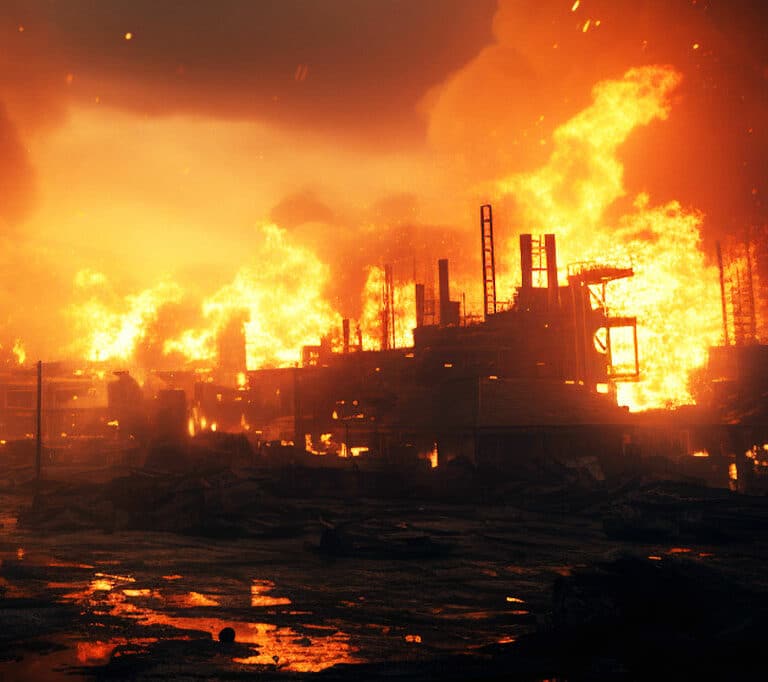
Improper handling, storage, or use of flammable liquids, gases, and materials can lead to fires.
Ignition sources near flammable substances, improper ventilation, and failure to follow safety guidelines are significant fire risk factors.
Proper storage, using suitable containers, and adhering to safety protocols when working with flammable materials are essential for fire prevention.
Human Error
Human error, such as forgetfulness or negligence, can contribute to fire incidents.
Leaving appliances unattended, forgetting to extinguish flames, or improperly handling flammable substances are examples of human error leading to fires.
Being vigilant, practising fire safety habits, and staying aware of potential fire hazards are crucial for preventing accidents.
Outdated Fire Risk Assessments
Outdated or inadequate fire risk assessments can fail to address emerging fire hazards, increasing the risk of fire incidents.
Regularly reviewing and updating fire risk assessments, considering changes in the environment or operations, and implementing appropriate fire safety measures are essential for effective fire prevention.
Mechanical Friction
Mechanical friction, such as faulty vehicles, machinery or equipment, can generate heat and sparks that ignite fires.
Lack of lubrication, loose parts, or worn-out components can contribute to friction-related fires.
Regular maintenance, inspection, and prompt repair of machinery are vital for preventing such incidents.
Negligence
Negligence, including careless behaviour, disregard for fire safety practices, or failure to follow regulations, can lead to fires.
Ignoring safety protocols, misusing electrical equipment, or bypassing safety measures are examples of negligent actions that increase the risk of fire incidents.
Cultivating a culture of safety, providing adequate fire prevention training, and enforcing compliance with fire safety standards can help mitigate the effects of negligence.
Nutella
In a tragic incident, sun rays shining through a glass jar of Nutella chocolate spread sparked a huge house fire that claimed the life of a family’s dog.
The low winter sunlight refracted by the jar, which was used to collect loom bands, caused the rays to be magnified and ignited blinds, resulting in the devastating fire.
This incident serves as a reminder to keep glass items away from windows and direct sunlight to prevent similar accidents.
Conclusion
Understanding the common causes of fire is crucial for promoting fire safety in our daily lives.
By being aware of the potential fire hazards associated with cooking equipment, heating devices, electrical equipment, smoking materials, candles, and various other sources, we can take preventive measures to minimise the risk of fire incidents.
Practising safe habits, ensuring regular maintenance, and adhering to fire safety guidelines can significantly reduce the likelihood of fires.
It is important to educate ourselves and others about fire prevention, promote fire safety awareness, and create a culture of responsibility and vigilance.
By taking these steps, we can protect our homes, workplaces, and communities from some of the main causes of fire and its devastating effects.

